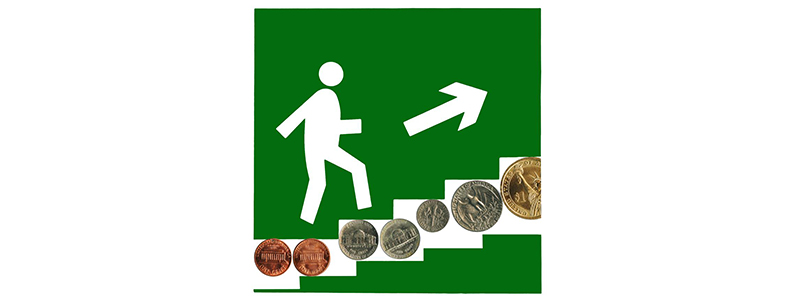What’s the best financial strategy to use for short-term investing?
Imagine that you receive cash as a gift, inheritance, or bonus, and you decide to use it within the next 6 to 12 months for some major purchase. You park the money in the bank account and receive somewhere near 0% interest. Then you call up your financial advisor and say, “Isn’t there something better I can do with my money?”
As a financial planner and investment advisor, I’ve been on the receiving end of that call many times. People call me up because they want to know what to do with their short-term cash.
What options are available?
The standard types of investments that I often help people with include stocks, bonds, and mutual funds, as well as bank deposits and money market funds. Which of these are most appropriate for a short-term investment?
Should I invest in the stock market now?
If you put the money in a stock portfolio or a mutual fund which invests in equities (stocks), you have the greatest potential for gain. Unfortunately, the possibilities for making money go hand in hand with the potential for loss. So cross stocks and stock mutual funds off your list as a place to park short-term cash.
Are short-term bond funds a smart investment?
Short-term bonds or bond funds might make sense for those expecting to use the cash within a year. However, after expenses and taxes, and taking into account that these investments have some level of risk, it’s possible that you won’t come out any better by using them compared to simply keeping the money in a low yielding money market or bank deposit.
Consider, as well, the amount of money in play. For example, if you net an extra 0.5% annualized return on a $25,000 investment over three months, you’ll end up with only about $30 more in your pocket. Is it worth the hassle to set up the account and do the paperwork? And more importantly, is it worth the potential risk? Let’s say the bond fund that you buy drops by 1% or 2%, not normally considered a major change, but certainly within the realm of possibility. Does it really pay to make the investment?
The bottom line
There is a cost for liquidity. That cost is that you cannot invest in any particularly aggressive fashion and you’ll have to settle for the low interest rates that your bank provides. Don’t try to outsmart the system and take greater risks with your short-term money.
What to do right now?
Even when investing for the short-term, keep a long-term approach and be wary of losing the principal that you will need in the future. Read this to learn what the top 3 things you should decide before investing should are.
Remember even short-term decisions can affect your long-term future.




